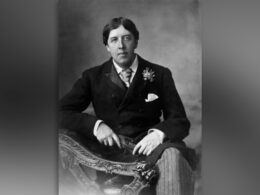Yesterday’s New York City election was the most consequential one in the last quarter century. The campaign for mayor revolved around issues like experience, housing, crime, and affordability, to say nothing of the uncertainty surrounding the relationship between City Hall and the White House.
Latino New Yorkers followed the race closely. I know this because Hispanic Federation’s recent poll of Latino voters found that nearly two-thirds followed news updates related to the election at least a few times per week, with half of that number saying they did so daily. They paid attention because they knew the stakes couldn’t be higher for them and their families.
They’re concerned about the economy. They’re worried about increases in the cost of living. And they’re nervous about public safety. What’s more, nearly two-thirds of Latino voters think the city is headed in the wrong direction, and they are looking for a change. New York is at a crossroads, and Latino New Yorkers don’t want more of the same.
For their part, candidates also paid attention to Latino voters. This makes a lot of sense. With more than one million registered voters, Latinos comprise 23% of the voting population. And as we saw in last year’s national election, Latino voters are not only critical to any campaign’s success, they are also up for grabs. And while voter registration and participation rates in New York City still have room to grow, as Zohran Mamdani noted recently, Latino New Yorkers were decisive in his victory in the Democratic primary for mayor.
Given the importance of Latino New Yorkers to the city’s future and to the electoral success of candidates, you’d expect our political institutions to reflect that reality. Unfortunately, they don’t. Walk the halls of City Hall, scan the roster of state legislators, or count the faces in citywide leadership positions, and the disparity becomes painfully clear: Latinos remain dramatically underrepresented in the very government meant to serve them.
This isn’t just a matter of fairness or optics — it’s a crisis of governance that affects millions of New Yorkers every day. Latinos confront some of the most significant socioeconomic challenges in the city, yet the voices crafting policy responses to poverty, housing, education, and economic development far too often don’t include those who understand these challenges firsthand.
And while New York City fares slightly better in Latino representation than the nation as a whole, the truth is that in a city where Latinos account for almost 30% of the population, the lack of representation in citywide, statewide, and federal positions is shocking.
What is to be done about the lack of leadership in New York City? One step in the right direction would be to look at the New York City Council. While much of the attention this election year was directed at who would occupy Gracie Mansion, the reality is that the city will also be choosing a new speaker of the Council.
The speaker can, and has, played an important role in the past as a partner, and sometimes counterweight, to the mayor. And as the leader of the chamber representing individual districts that reflect the diversity of the city, speakers often understand and can see issues at a more granular level than mayors.
Several years ago, Mayor Bill de Blasio looked to the City Council for a partner for his progressive agenda for the city. He found that partner in Councilmember Melissa Mark-Viverito, who became the first Latina speaker in New York City history.
The relationship between the mayor and the speaker can be fraught, and as history has shown us, they don’t always agree, and that’s as it should be. But having a Latino/a voice at the table helps elevate some of the issues that Latino New Yorkers care about.
The current New York City Council includes a deep bench of Latino elected officials who have the experience to understand the problems facing both the city and its sizable and growing Latino communities. As New York City’s new government begins to take shape, it should take advantage of that resource. Latino New Yorkers have high expectations for the next four years, and meeting those expectations requires being effectively represented in the halls of power. We have the talent, it’s time we were given the opportunity.
Miranda is president and CEO of Hispanic Federation.








